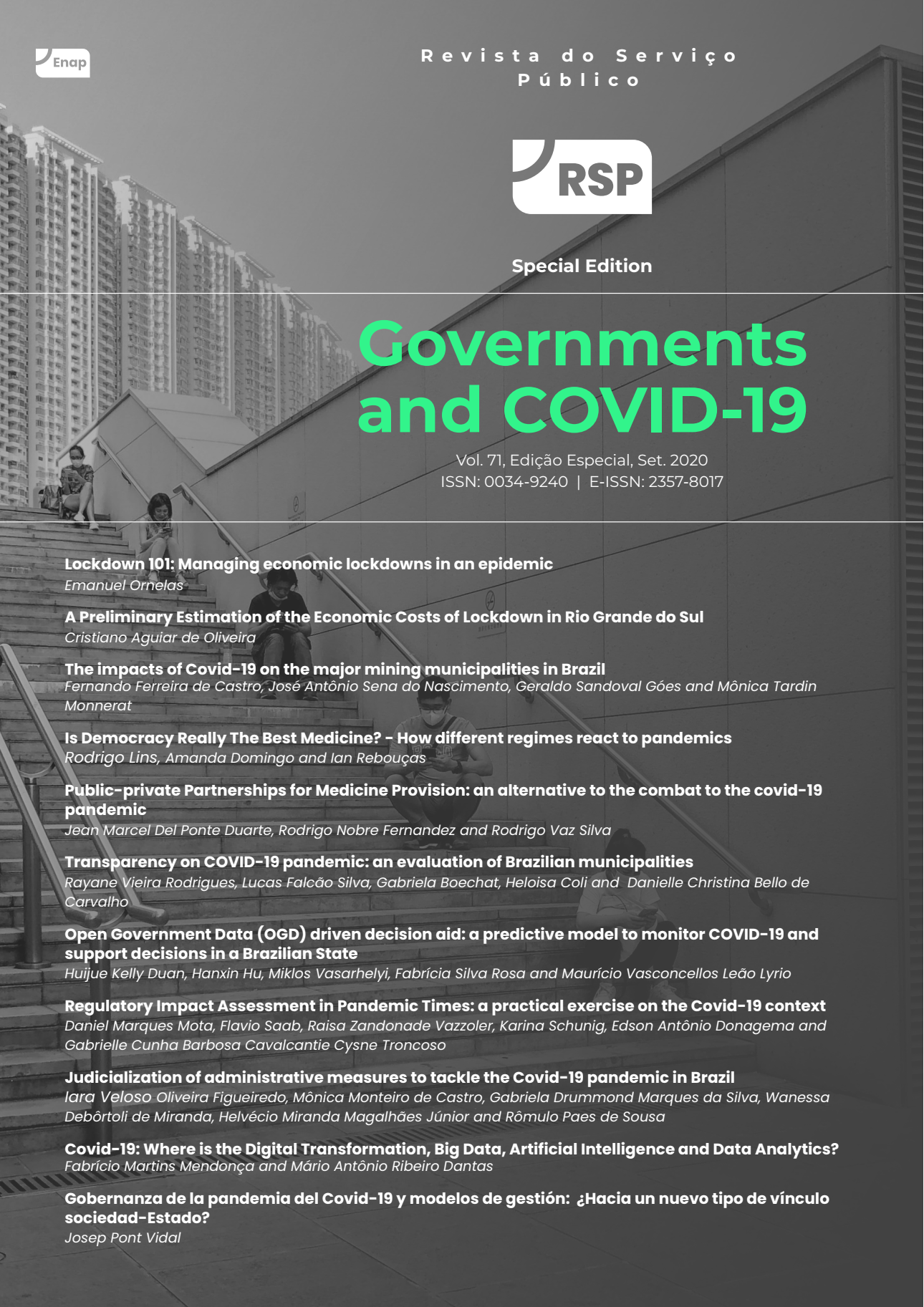Judicialization of administrative measures to tackle the COVID-19 pandemic in Brazil
DOI:
https://doi.org/10.21874/rsp.v71i0.4998Palabras clave:
judicialization of health, COVID-19Resumen
This article studied the judicialization processes related to the pandemic of the new coronavirus, within the scope of Administrative Law. The cases that reached the Brazilian Federal Supreme Court (FSC), available at the “Painel de Ações COVID-19”, were analyzed, as well as a sample of the cases that reached the state courts, obtained through journalistic reports, consolidated on the “Consultor Jurídico” website. Descriptive analysis and content analysis techniques were used, in the thematic mode, for both sources of information. The following variables were analyzed: procedural classes groups, procedural classes, main subject, notification date, time until the first decision, decisions, decisions groups, and total of cases archived remotely. Near 34% of the actions referred to the flexibilization or tightening of people circulation restrictive measures and the opening of commerce and services, and another 34% referred to budgeting issues, mainly dealing with the suspension of state debts and untying resources to combat the pandemic. The median time until the first decision made by the FSC was less than five days for all categories. The judicialization of COVID-19 pointed out already known flaws in public health and social policies in Brazil, and it can boost several attitudes, both by the Legislative and the Executive, to mitigate these problems. This article demonstrates the importance of observing the responses brought by the judicialization, and of the dialogue between the three powers, to deal with the demands of the pandemic better and with several other demands of society.
Descargas
Descargas
Publicado
Cómo citar
Número
Sección
Licencia
- A RSP adota a licença Creative Commons (CC) do tipo Atribuição – Uso Não-Comercial (BY-NC).
- A licença permite que outros remixem, adaptem e criem obra licenciada, sendo proibido o uso com fins comerciais.
- As novas obras devem fazer referência ao autor nos créditos e não podem ser usadas com fins comerciais, porém não precisam ser licenciadas sob os mesmos termos dessa licença.
- Ao publicar o artigo na RSP, o autor cede e transfere para a ENAP os direitos autorais patrimoniais referentes ao artigo.
- O artigo publicado na RSP não poderá ser divulgado em outro meio sem a devida referência à publicação de origem.
- O autor que tiver o artigo publicado na RSP deverá assinar o Termo de Concessão de Direitos Autorais (em momento oportuno a editoria da Revista entrará em contato com o autor para assinatura do Termo).



